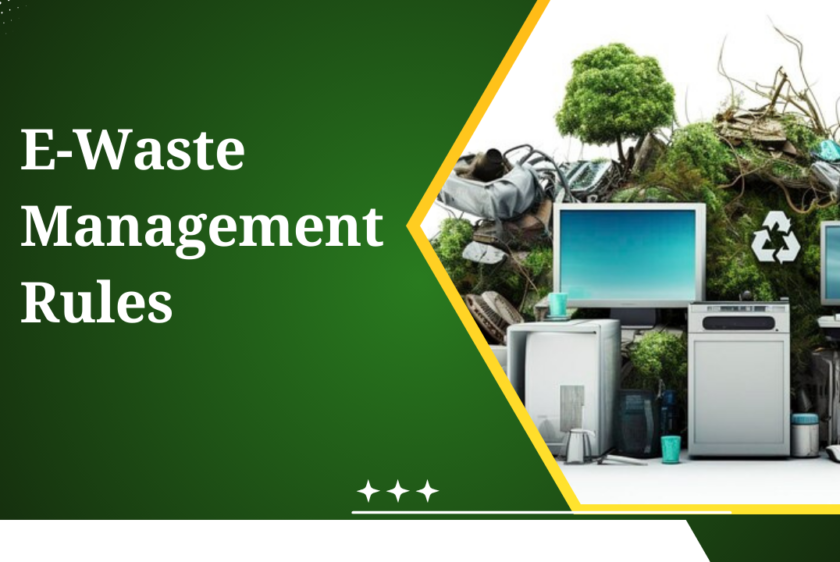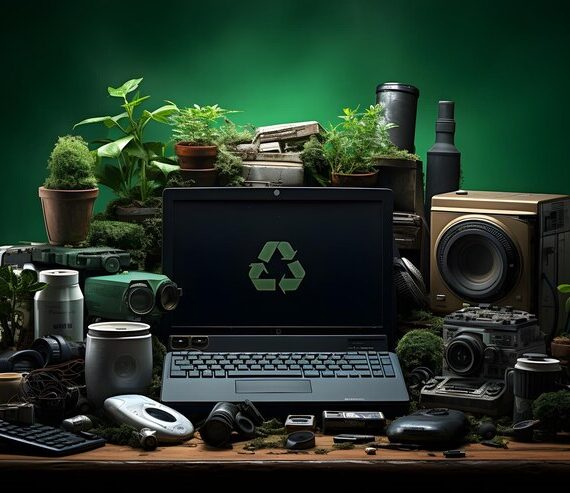
Top 5 Things Businesses Need to Do to Comply with E-waste Management Rules
In the virtual age, businesses rely heavily on electronic devices to drive productivity and innovation. But have you ever wondered what happens to these devices when they are no longer useful? How do businesses manage the growing stock of electronic waste, that accumulates over time? E-waste poses a significant environmental challenge as electronic devices contain life-threatening materials that can harm the environment if not disposed of properly. Many businesses are now adopting e-waste management strategies to responsibly recycle and dispose of old electronics, reducing their environmental impact. Proper e-waste management helps protect the planet and encourages a more sustainable approach to technology consumption in the business sector.
5 Crucial Steps To Stay Compliant With E-waste Management Rules:
Understand Applicable Regulations:
Businesses must familiarize themselves with the e-waste management regulations applicable to their jurisdiction. Researching and understanding specific laws for electronic waste disposal and recycling is crucial, as rules can vary widely based on the region.
For example, the Waste Electrical and Electronic Equipment (WEEE) Directive in the European Union sets guidelines for the collection, treatment, recycling, and recovery of electronic waste. In the United States, the Resource Conservation and Recovery Act (RCRA) governs hazardous e-waste management, including certain types of e-waste. By understanding these regulations, businesses can ensure compliance and avoid potential fines or penalties.

Conduct an E-Waste Audit:
Conducting a comprehensive e-waste audit is essential for businesses to assess their current electronic equipment inventory and disposal practices. Start by compiling a detailed inventory of all electronic devices used within the organization, including computers, laptops, monitors, printers, scanners, and mobile phones. Document the condition, age, and usage frequency of each device, as well as any plans for replacement or upgrades. This audit will provide valuable insights into the volume and types of electronic waste generated by the business, allowing for informed decision-making and strategic planning.
Implement a Recycling Program:
Establishing a robust e-waste recycling program is critical for businesses committed to responsible waste management. Partner with certified electronic waste recyclers who adhere to industry standards and environmental regulations. These recyclers should employ safe and environmentally sustainable practices for collecting, dismantling, and recycling electronic devices. Ensure that the chosen recycler has the necessary certifications and permits to handle e-waste legally and responsibly.
Additionally, employees should be educated about the significance of recycling e-waste and provided with convenient collection points within the workplace to encourage participation.
Prioritize Data Security:
Protecting sensitive data is paramount when disposing of electronic devices, particularly for businesses handling confidential information. Before recycling or disposing of electronic gadgets, take proactive measures to secure and erase data effectively.
Implement data wiping or destruction protocols that comply with industry standards, such as the National Institute of Standards and Technology (NIST) guidelines or ISO standards for data sanitization. It’s essential to verify that the chosen electronic waste recycler offers data destruction services to safeguard sensitive information effectively. By prioritizing data security, businesses can mitigate the risk of data breaches and protect their reputation and integrity.
Educate Employees:
Employee education and awareness are key components of a successful waste management strategy. Provide comprehensive training to employees on proper e-waste disposal practices, including the identification, segregation, and collection of electronic devices for recycling.
Prioritize the importance of adhering to company policies and regulatory requirements to ensure compliance with e-waste regulations. Encourage employee engagement through awareness campaigns, training sessions, and incentives for responsible behavior. By fostering a culture of environmental responsibility and sustainability, businesses can empower their employees to make informed decisions and contribute to positive environmental outcomes.
Final Say!
In short, responsible e-waste management is a legal obligation that each business should be aware of. By implementing the five essential steps outlined in this guide, companies can ensure compliance with waste management regulations while minimizing their environmental footprint and protecting sensitive data. Embracing sustainable practices benefits the planet, enhances corporate reputation, and fosters a culture of responsible stewardship. Remember, proactive electronic waste management is essential for creating a healthier, cleaner, and more sustainable future for generations to come.
Read Our More Blogs:
10 Benefits Of Using A Professional E-Waste Management Company
What Are the Economic Benefits of Responsible E-Waste Management?
Follow us:







